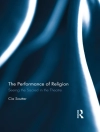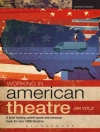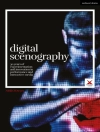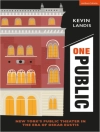Contends that the narrative and aesthetic qualities of the documentary genre enable new understandings of animals and animal/human relationships.
As indicated by the success of such films as March of the Penguins and Food, Inc., the documentary has become the preeminent format for rendering animals and nature onscreen. In Regarding Life, Belinda Smaill brings together examples from a broad array of moving image contexts, including wildlife film and television, advocacy documentary, avant-garde nonfiction, and new media to identify a new documentary terrain in which the representation of animals in the wild and in industrial settings is becoming markedly more complex and increasingly more involved with pivotal ecological debates over species loss, food production, and science.
While attending to some of the most discussed documentaries of the last two decades, including Grizzly Man; Food, Inc.; Sweetgrass; Our Daily Bread; and Darwin’s Nightmare, the book also draws on lesser-known film examples, and is one of the first to bring film studies understandings to new media such as You Tube. The result is a study that melds film studies and animal studies to explore how documentary films render both humans and animals, and to what political ends.
Spis treści
List of Illustrations
Acknowledgments
1. Introduction
2. Labor, Agriculture, and Long Take Cinema: Working on the Surface of the Earth
3. Meat, Animals, and Paradigms of Embodiment: Documentary Identification and the Problem of Food
4. Arctic Futures and Extinction: Loss, the Archive, and (Wildlife) Film
5. Antarctica, Science, and Exploration: Encounters at the End of the World
6. The Nonfiction of You Tube and 'Naturecams’: Posthumanism and Reflections on Agency
7. In Conclusion: Documentary, Science, and the Umwelt
Notes
Works Cited
Index
O autorze
Belinda Smaill is Associate Professor in Film and Screen Studies at Monash University in Australia. She is the author of The Documentary: Politics, Emotion, Culture and the coauthor (with Olivia Khoo and Audrey Yue) of Transnational Australian Cinema: Ethics in the Asian Diasporas.












